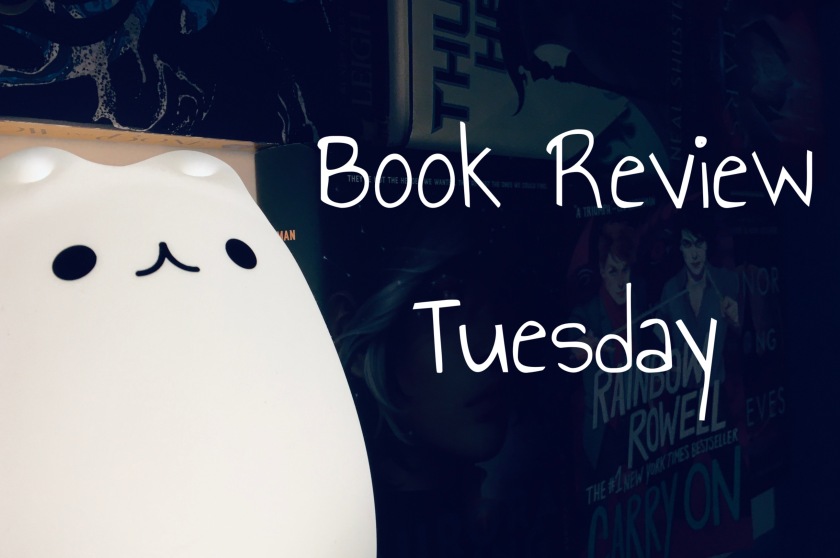
Happy Tuesday, bibliophiles!
I figured that I should scour my TBR for books for disability pride month (and to read beyond that, of course), and I found this one that I had shelved back in 2019. The cover immediately caught my eye (AAH THE COLOR SCHEME), but I still have mixed feelings about the book itself – not ragingly bad, or anything, but not amazing either.
Enjoy this week’s review!

Jenna has lived her whole life believing that she was born with cerebral palsy, and she’s never let it stop her from doing what she wants to do. But after discovering that her parents hid the fact that her CP was caused by an injury at birth, she’s infuriated with them – and the fact that she hasn’t been able to make her own decisions regarding the surgeries she gets. With the help of her lawyer uncle, she decides to push for medical emancipation.
All the while, Jenna’s childhood crush, Julian, has moved back into town. She reconnects with him over text with an anonymous persona, but will she have the courage to reveal her true self to him?

TW/CW: internalized ableism, mild violence (punching), hospitalizations, ableist slurs (challenged), descriptions of injury
WARNING: this review may contain some minor spoilers, so tread lightly!
This is…complicated. I picked this book up for disability pride month, and while I can’t speak to the representation itself (as I don’t have cerebral palsy), there were good and bad parts of this book, in terms of how disability was represented and the plot itself.
Let’s start off with the good stuff. Jenna as a character was definitely a great protagonist – she’s not perfect, but she’s incredibly determined and a very independent thinker. She’s a little messy at worst, but I really didn’t mind. She had a great personality, for the most part, and her struggle with getting medical emancipation was incredibly eye-opening.
Again, I can’t speak to how accurate the CP rep was, but for the most part, it seemed well researched. The author mentions in a note at the back of the book that she worked with kids with CP, which seems to have informed part of Jenna’s story. A good portion of it seemed to work – there was clearly a lot of research put into the different kinds of mobility aids that Jenna uses and the kinds of surgeries she went through. It also deftly defied the dreaded “cure narrative” – Jenna’s attitude towards her disability was more one of reaching for freedom than seeking to “overcome” it in anyway. It’s not often that we get this kind of story from abled authors, so I appreciated that.
However, I’m still a little miffed by how they represented Jenna’s disabled identity. At a point in the book, she reaches out to someone who went through a surgery that her parents want her to have (part of why she seeks to be medically emancipated). This person responds to Jenna later in the book via email, and explains that she leads a “differently-abled” club at her school; she explains how she prefers that term, even though most of the disabled community doesn’t. (For those of you who don’t know: it’s generally accepted that the majority of the disabled community prefers not to use the term “differently abled,” as the terminology is seen as sugarcoating or patronizing them and their experiences. Some disabled people may use the term, but when referring to the community, it’s good to just stick with “disabled.”)
Now, if this had come from a disabled author, I might have passed it by; as I said, not everybody in the disabled community dislikes the term “differently abled,” but disabled is usually the more accepted term. But since this is coming from an abled author, I’m really not sure how to feel about it; it’s generally abled people that have used started using the term (which is where the discourse comes from), so putting that on disabled people in a book – especially someone who Jenna looks to for advice – doesn’t sit right with me. Additionally, Jenna never explicitly says that she’s disabled; maybe I’m reading into it too much, but it just seems a little strange, coming from an abled writer writing a disabled character. (And on the subject of the club…did everybody in said club actually agree to call it the “differently abled club?” I find that hard to believe…)

Other than that, there were a lot of hospitalization scenes that felt a little too much like plot devices, and the scene with the rival hockey team (this is where the ableist slurs TW comes in) didn’t need to happen; all it did was give a bit of “I love my girlfriend!” points for Julian (he punches the guy who yells ableist slurs at Jenna), which created some conflict that I felt was completely unnecessary. It’s My Life certainly had a rom-com feel to some of it, so why not just keep it that way? CAN I GET SOME MORE DISABLED BOOKS THAT DON’T CENTER AROUND THE PROTAGONIST GETTING SLURS YELLED AT THEM, PLEASE?
My only other complaints were that some of the high school scenes weren’t super authentic, and I didn’t care a whole lot about the romance, but that’s the most minor of my issues. But overall, mixed feelings on this one – the themes of medical emancipation and Jenna’s character were great, but the disability representation, while I can’t speak to the CP accuracy, had some good intentions and research, but uncomfortable messages surrounding the identity itself. 3 stars.

It’s My Life is a standalone, but Stacie Ramey is also the author of The Sister Pact, The Homecoming, The Secrets We Bury, and Switching Fates.
Today’s song:
That’s it for this week’s Book Review Tuesday! Have a wonderful rest of your day, and take care of yourselves!

